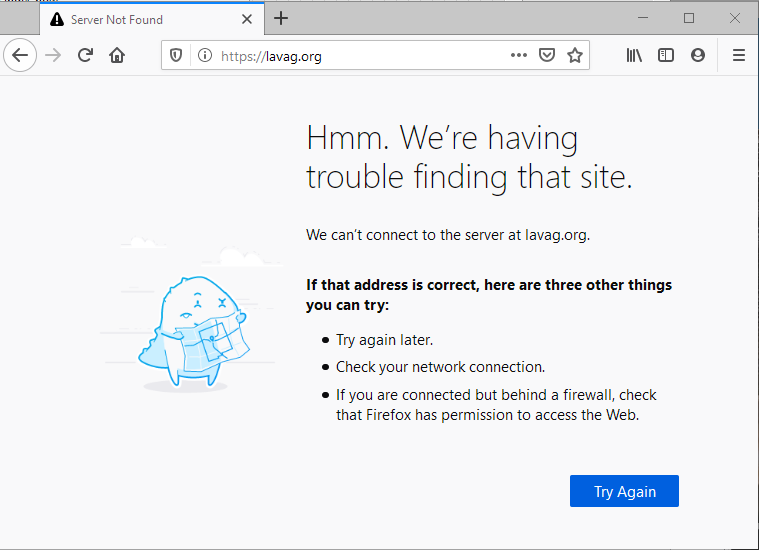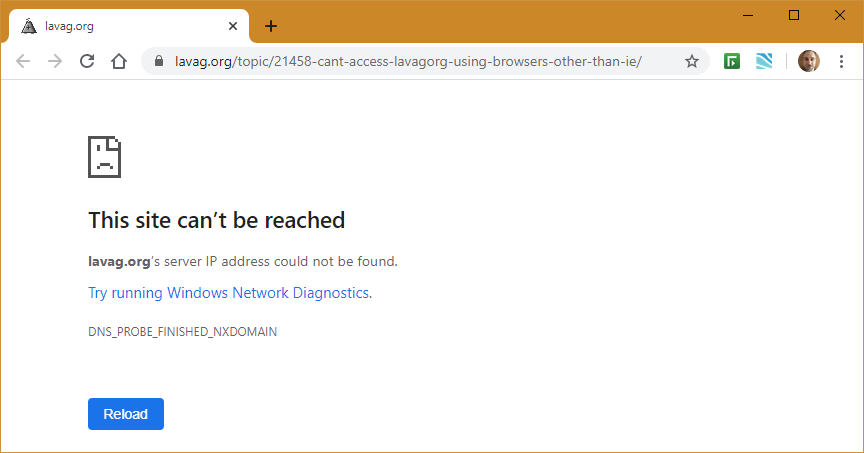-
Posts
207 -
Joined
-
Last visited
-
Days Won
7
Content Type
Profiles
Forums
Downloads
Gallery
Posts posted by bmoyer
-
-
That's pretty much what I do too. When I have a re-entrant VI that creates IMAQ refs, I use the VI clone name as part of the Image Name. If you're concerned about the memory used when the VI isn't active, you can close the IMAQ refs and then later reopen them, but I don't usually bother doing this much anymore, as most (if not all) of my Imaging apps are developed in 64-bit now.
-
Thanks for everyone's feedback. I wasn't aware of the Flush Event Queue, so I if needed, hopefully I'll remember to use it in the future.
As for that comment in the Timeout case, I guess I never fully understood or saw an example of the concept being implemented so I wasn't exactly sure what it meant.
So, I'm guessing that I put the data in the Actor Internal Data cluster along with a needs display update boolean (for each type of data that I want with delayed display). When the code returns to the Timeout case, read the various update booleans and act on them there, or (probably a cleaner method) call the cases (in the "Follow-on Actions and Error Handling") that update those indicators/controls.
Is that about right?
-
I was wondering how you make the front panel display update lossy. Currently, when I want to do this, I check the Time of the event, and if the event is, let's say >1s old, I don't bother updating the display/indicator. If that how you go about it, or is there another way? Is there a way to only get the latest event and ignore the rest? I'm asking this mainly from the perspective of using your Messenger Library toolkit.
Thanks,
Bruce
-
Thanks! Wish you would've told me that a few months ago! 😉
-
 1
1
-
-
I've been dealing with silent crashes for some months now, and it's been a frustrating exercise (I created some NI support tickets to try to help, but that's been difficult as well). I'm using LV2017.0.1f4 (64-bit) and I suspect it's related to possibly a misbehaving NI frame grabber (NI PCIe-1433) since it seems to crash most often when starting up/initializing communication with the cameras. The system has 6 frame grabbers and also has various hardware (power supplies, temperature chamber, etc.).
Recently (yesterday) I disabled the parallel startup of the communications and one of the frame grabbers was acting up (noise on the camera com channel) so I only used 5 of the 6 frame grabbers and last night the entire run was successful! My coworker was amazed! We are running another test tonight to make sure it wasn't a fluke.
So right now I'm pointing the finger at either faulty hardware or some bug not allowing many simultaneous IMAQ connections to all start up at the same time.
Bruce
-
Thanks for your replies. It's probably a problem on our internal network, since I can log in from home on my personal computer just fine using Chrome and FIrefox. I was just wondering if anyone has experienced this since it's so difficult getting corporate IT to start working on something like this, and the process of explaining and trying to convince over and over has been a pain (based on past experience). My local IT person is aware of the issue, but it's not clear when or if this will get fixed.
Thanks for you help!
Bruce
-
Clearing the cache and history and logging out of Chrome didn't help.

-
It's working at this moment actually now it's not (on Chrome), but the issue comes and goes (it doesn't work more times than not). Incognito mode is disabled by IT here. When it happens I will try clearing the cache. It happens on both my laptop and my workstation. I installed and tried Firefox yesterday and that was having the same issue.
Thanks,
Bruce
-
I've been having this issue for some time now (probably since the end of last year), if I use Chrome (or Firefox) to access LAVA G, it hardly ever works (doesn't show the website). It works reliably using IE but I prefer not to use IE anymore if possible because websites are beginning to warn me that it won't be supported for much longer.
Are others also seeing this behavior?
Thanks,
Bruce
-
This might be worth looking at but no solution was given:
https://forums.ni.com/t5/LabVIEW/Failure-to-initialize-lvanlys-DLL/td-p/3759330?profile.language=en
They were having the same trouble but with LV2017.
-
Just to clarify, is this device similar in functionality to the NI-845x? I'm trying to understand the application of such a device.
https://www.ni.com/en-us/support/model.usb-8451.html
Thanks!
-
Thanks, I'm currently doing a project using I2C so I'd like to look into this option.
I noticed that Product Datasheet 56 is called out in this link but not listed in the datasheets page.
Does this enable I2C communications over a COM port? What speeds/settings are available?
Thanks!
-
Sorry, I don't have an answer, but I encountered this problem very recently (it was brought to my attention yesterday!). I don't remember making any changes, it was the NI 3-button dialog getting stuck behind another dialog. I just re-built the exe and it worked so problem solved!
 (until it comes back on the next build)
(until it comes back on the next build)  I'm using LV2017SP1f3. You would think that the most recent modal window would be of higher modality than the previous.
I'm using LV2017SP1f3. You would think that the most recent modal window would be of higher modality than the previous.
-
Thanks for the reply.
I was looking at:
https://www.sonnetstore.com/products/echo-express-3d-thunderbolt3
There are other ones as well from Magma and other suppliers.
I have both Camera Link and CoaXPress (Bitflow) framegrabbers, hoping to use both with a laptop with Thunderbolt. Why do you recommend CXP? What CXP frame grabber do you use? I still haven't found much support for it.
Thanks,
Bruce
-
Has anyone used a Thunderbolt expansion chassis with an NI frame grabber using Windows?
I'm looking to add the ability to use a NI PCIe-1433 Camera Link frame grabber to my laptop. Any advice?
Thanks!
Bruce
Cross-posted at: https://forums.ni.com/t5/Machine-Vision/Using-a-Thunderbolt-expansion-chassis-with-a-NI-frame-grabber/m-p/3978018
-
-
I think I must have had low glucose at the time (just before lunch). I should've created a simple example, but it turned out I was missing a input to my VI! Grrh! It's working now.
Thanks for your help!
Bruce
-
This seems like it should be easy, but I have not been able to create a folder that has decimal/period using LabVIEW.
For example, creating a folder named "Blah 1.1" yields a folder named "Blah". I can create the folder directly in Windows so I know it is valid.
Has anyone else seen this before?
Thanks,
Bruce
-
On 2/1/2019 at 7:59 PM, smithd said:
Also, this is kind of a side point but the concept is the same. Has anyone noticed that reentrant VIs get super slow sometimes when debugging? Its not always, but I can't figure out what conditions might be causing it. Its like you're going along debugging some code, you step into a reentrant VI, and everything just stops, and it takes like 20-30 seconds for the window to materialize. I know its not just one computer, sadly.
I've noticed a lot of slowdowns with LV2017 and LV2018 doesn't seem any better. Also, I use the NI-IMAQ extensively and NI-IMAQ 2018 is buggy and doesn't seem ready for widespread use.
I've been trying to deal with these massive slowdowns with LabVIEW 2017 for over a year now and it has really slowed down development for me. I too have issues scrolling (I have the same 2Hz refresh rates sometimes, but then it seems to mysteriously go away), slow window drags, slow selection dragging, etc. and have contacted NI technical support about this but since I can't provide my project, haven't gotten far at determining cause or solutions.
Why does it seem that nobody at NI is concerned about this behavior?
-
 1
1
-
-
Thanks for your reply. I have 60 different actors, some are spawning multiple instances, but not many. I had a video attached to my previous post (sorry for the poor quality), and I routinely encounter long delays when iterating (after about 5 or so iteration of running, stopping, then making edits, then re-running and so on). I have been in contact with NI support about this problem but so far they haven't come up with anything. It's been difficult to debug since it doesn't seem to be a problem with small projects, and because of IP/corporate issues, I can't just send the whole project to them.
What's the longest delays you've seen?
Thanks,
Bruce
-
Hi everyone,
I've been developing a fairly large program using drjdpowell's Messenger Library (over 60 actors so far) and I am encountering slowdowns in the LabVIEW environment (LV2017 SP1) that I've not been able to figure out.
After running my source code multiple times (in order to make edits to the code), I find that the duration of time that I have to wait after stopping the code becomes increasingly long. Sometimes it get to the point where I need to wait over a minute before I can continue using the LabVIEW environment!
Is this normal/expected behavior? It makes using LabVIEW very painful, and it ruins my train of thought.
Any suggestions on how to improve things?
Thanks,
Bruce
-
Wow, so easy! I guess when the top-level level VI isn't broken I forget that there's another way to bring up the error window beside clicking the broken arrow!
Thanks for all of your help!
Bruce
-
On various occasions I run into the problem where one of my Actors is broken and I didn't realize it (such as a Type Def needs updating, or maybe I accidentally left an Actor in an unfinished state, etc.). This causes all Actors to not be able to be dynamically launched until the bad/broken Actor is fixed. Since the Actor is dynamically launched, I don't realize this until I try running the program.
Is there a good way to figure out which Actor is broken besides going through the process of opening all Actors to find out?
Thanks,
Bruce
-
Oh! That was it! I had been struggling with this for a while now.
Now it only takes a couple of seconds to save!
Thanks for the tip!





List all Fonts
in User Interface
Posted · Edited by bmoyer
I just created a new snippet to test hooovahh's explanation. Does this one work for you?
Edit: Trying my example didn't work for me either. I used to be able to do it in Internet Explorer but newer web browsers don't seem to support this anymore.